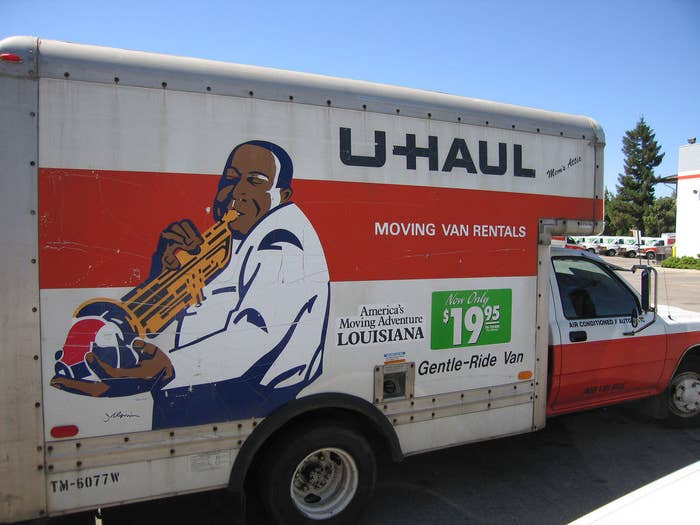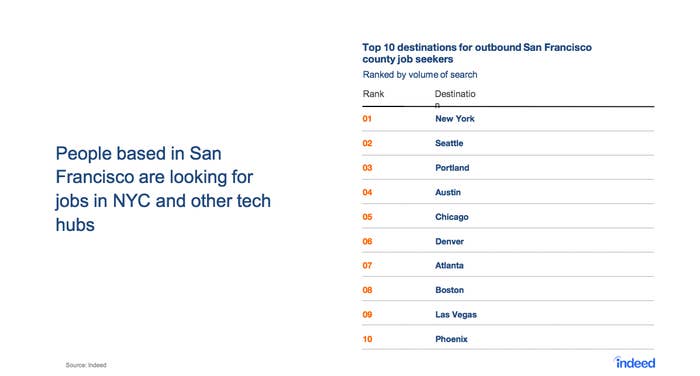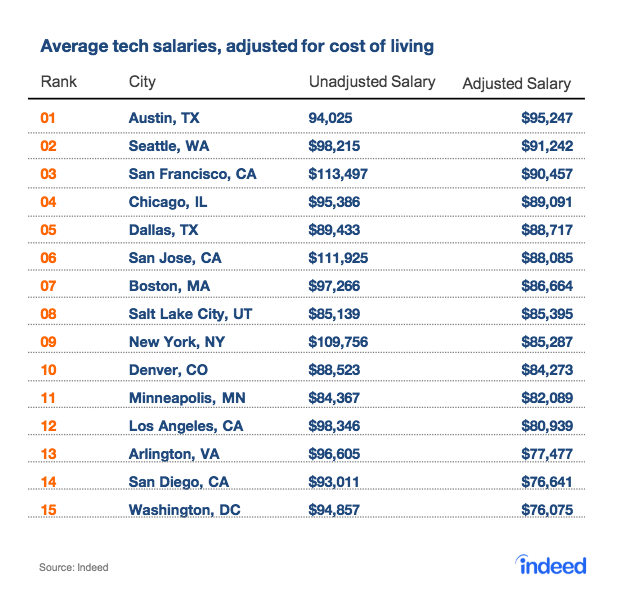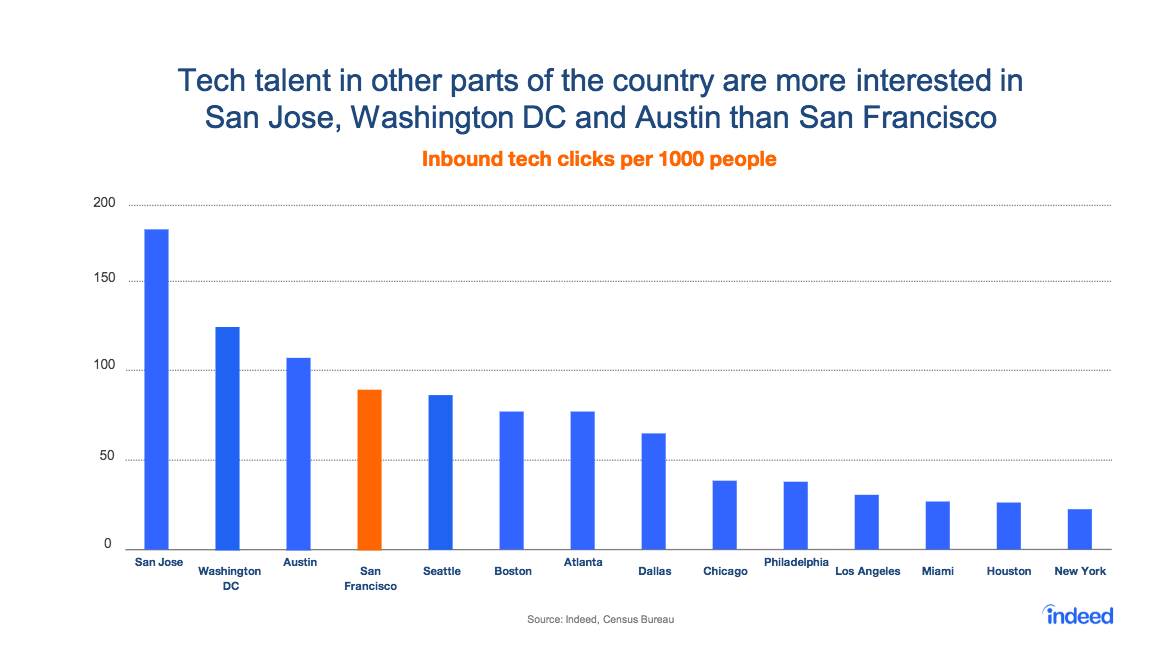
On Wednesday, Kate Vershov Downing, a corporate lawyer for an enterprise cloud company called ServiceNow, resigned from the Palo Alto Planning and Transport Commission. The reason, she said, was that she and her husband — a software engineer — could no longer afford to live there.
“We rent our current home with another couple for $6200 a month,” Downing wrote in a post on Medium. “If we wanted to buy the same home and share it with children and not roommates, it would cost $2.7M and our monthly payment would be $12,177 a month in mortgage, taxes, and insurance. That’s $146,127 per year — an entire professional’s income before taxes. This is unaffordable.”
Like dozens of her friends have already done, Downing will be relocating outside of the Bay Area — a financial decision a new report says is becoming a trend.
“Twenty six percent of software engineers in San Francisco are searching for jobs out of state,” said Indeed’s Paul D'Arcy, who presented this research to San Francisco’s Chamber of Commerce on Wednesday afternoon. D’Arcy said that, specifically, they’re looking in Seattle, Portland, Austin and Denver — cities that have emerged as tech hubs, but where salaries go a little further.

According to Indeed, tech workers in San Francisco are making an average $113,497 a year. In Seattle, that figure is lower, at $98,215, and in Austin, lower still, at $94,025. But when those salaries are adjusted for cost of living, which is much higher in California than it is in Texas, that order is reversed. While San Franciscan techies are spending around 37% of their income on rent, Austinites are only shelling out 23% of their earnings on housing.

“We've seen, globally, tech salaries equalize,” said D’Arcy during his presentation on Wednesday. “It used to be people in San Francisco made much more, but that gap is decreasing. With the dramatic increase in cost of living, the economics are becoming less favorable to workers.”
As a result, according to Indeed’s data, San Francisco has has fallen behind Washington DC and Austin when it comes to desired destinations for people searching for jobs in tech. (San Jose is still in the lead, though.)

If the city is interested in reversing this trend, D’Arcy said, it will need to invest heavily in transportation systems that would help commuters access cheaper housing; if companies want to help, he said, they’ll need to offer workers based in San Francisco increased flexibility — aka, permission to work from home.
"The loudest voices in the community feel that the desire to create more affordable housing is spoiled entitlement." https://t.co/HVhYlwg69j
San Francisco is the third most unequal city in America after Bridgeport, CT and New York City, according to Indeed’s report, and that gap is widening. As the top earners get richer, the lowest earners — those in the bottom 20th percentile — are actually seeing their income decrease. It’s a problem Kate Downing is thinking about, even as she prepares to bail on Silicon Valley proper.
“It’s clear that if professionals like me cannot raise a family here,” she wrote, “then all of our teachers, first responders, and service workers are in dire straits.”
